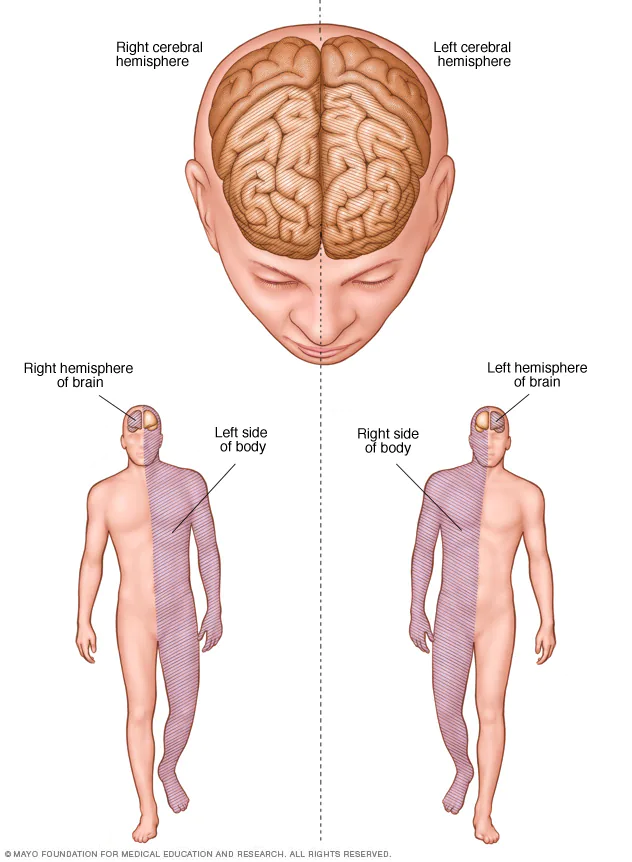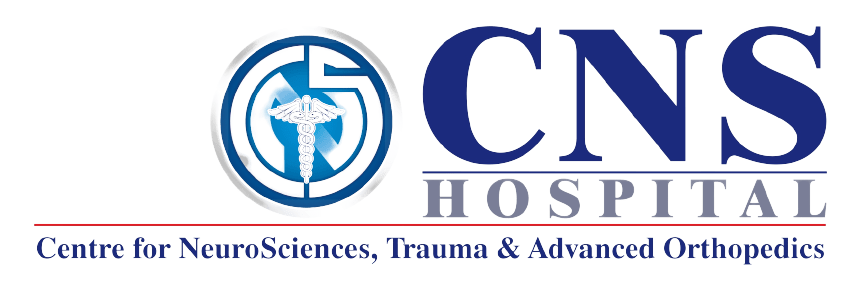Brain stroke treatment in Nashik
Brain Stroke
Brain Stroke
A stroke, also known as a brain attack, occurs when blood flow to a part of the brain is interrupted, leading to damage to brain cells. There are two types of strokes: ischemic stroke and hemorrhagic stroke.
Visit CNS Hospital for the prominent brain stroke treatment in Nashik. CNS Hospital has the team of skilled and experienced neurologists under one roof.
Ischemic stroke is the most common type of stroke and occurs when a blood clot blocks a blood vessel in the brain. This can happen due to atherosclerosis, which is the buildup of fatty deposits (plaque) in the arteries, or a blood clot that travels to the brain from another part of the body, such as the heart.
Hemorrhagic stroke occurs when a blood vessel in the brain ruptures and bleeds into the surrounding brain tissue. This can happen due to high blood pressure, weakened blood vessels, or an aneurysm (a bulge in a blood vessel).
The symptoms of a stroke depend on which part of the brain is affected and can include sudden numbness or weakness on one side of the body, difficulty speaking or understanding speech, sudden severe headache, blurred vision, and difficulty walking or maintaining balance.

Immediate medical attention is critical in the event of a stroke, as prompt treatment can minimize brain damage and improve the chances of recovery. Treatment options may include medication to dissolve a blood clot or surgery to repair a ruptured blood vessel. Rehabilitation may also be necessary to help the person recover physical and cognitive function.
Prevention of stroke includes controlling high blood pressure, maintaining a healthy weight, exercising regularly, quitting smoking, and managing diabetes and high cholesterol
What causes a stroke?
Depending on the type of stroke, a different cause may apply. There are three primary types of strokes:
- transient ischemic attack (TIA)
- ischemic stroke
- hemorrhagic stroke
- These categories can be further broken down into other types of strokes, including:
- embolic stroke
- thrombotic stroke
- intracerebral stroke
- subarachnoid stroke
The type of stroke you have affects your treatment and recovery process.
Symptoms of brain stroke
The symptoms of a stroke can vary depending on the location and severity of the brain damage, but they typically come on suddenly and can include:
- Sudden numbness or weakness on one side of the body, including the face, arm, or leg
- Confusion, trouble speaking, or difficulty understanding speech
- Trouble seeing in one or both eyes, or double vision
- Sudden severe headache with no known cause
- Loss of balance or coordination, dizziness, or difficulty walking
- Trouble swallowing
- Loss of consciousness or coma
It is important to remember that time is critical when it comes to stroke, and prompt medical attention can significantly improve the chances of recovery. If you or someone you know experiences any of these symptoms, call for emergency medical help immediately.
Risk factor of brain stroke
There are several risk factors that increase the likelihood of having a stroke. Some of the most common risk factors include:
High blood pressure (hypertension): This is the most important risk factor for stroke. High blood pressure can damage blood vessels in the brain, making them more likely to rupture or become blocked.
Smoking: Smoking can damage blood vessels and increase blood pressure, both of which increase the risk of stroke.
Diabetes: People with diabetes are at a higher risk of stroke because high blood sugar levels can damage blood vessels and increase the risk of atherosclerosis.
High cholesterol: High levels of cholesterol in the blood can cause plaque to build up in the arteries, increasing the risk of atherosclerosis and stroke.
Atrial fibrillation (AFib): This is an irregular heartbeat that can cause blood clots to form in the heart, which can then travel to the brain and cause a stroke.
Age and gender: The risk of stroke increases with age, and men are more likely to have a stroke than women.
Family history: If a close family member has had a stroke, the risk of stroke is higher.
Other risk factors for stroke include obesity, a sedentary lifestyle, heavy alcohol consumption, and certain medical conditions such as sickle cell disease and autoimmune disorders. It is important to manage these risk factors through lifestyle changes and medical treatments to reduce the risk of stroke.
How to prevent a stroke
Not all strokes can be prevented with lifestyle changes. Nonetheless, several of these modifications can significantly reduce your risk of stroke.
The following modifications are among them:
- Quit smoking. If you smoke, quitting now will lower your risk of stroke. You can reach out to your doctor to create a quit plan.
- Limit alcohol use. Heavy alcohol consumption can raise your blood pressure, which in turn raises the risk of stroke. If reducing your intake is difficult, reach out to your doctor for help.
- Keep a moderate weight. Overweight and obesity increases the risk of stroke. To help manage your weight, eat a balanced diet and stay physically active more often than not. Both steps can also reduce blood pressure and cholesterol levels.
- Get regular checkups. Talk with your doctor about how often to get a checkup for blood pressure, cholesterol, and any conditions you may have. They can also support you in making these lifestyle changes and offer guidance.
All of these measures will assist you become in better shape to ward off strokes.
Diagnosis of stroke
Your doctor will ask you or a family member about your symptoms and what you were doing when they arose. They’ll take your medical history to find out your stroke risk factors. They’ll also:
- ask what medications you take
- check your blood pressure
- listen to your heart
You’ll also have a physical exam, during which your doctor will evaluate you for:
- balance
- coordination
- weakness
- numbness in your arms, face, or legs
- signs of confusion
- vision issues
Your doctor will then do certain tests to help confirm a stroke diagnosis. These tests can help them determine whether you had a stroke and, if so:
- what may have caused it
- what part of the brain is affected
- whether you have bleeding in the brain
If you are facing such symptoms related to brain you must get consult yourself today. Visit CNS Hospital for brain stroke treatment in Nashik.

